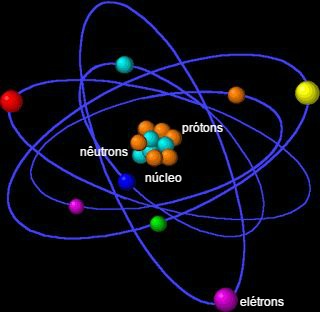Electron (e – or β – ) is a particle that constitutes the atom, that is, it is a subatomic particle. It has a negative charge and is located in the electrosphere, around the atomic nucleus, which results from the electromagnetic force.
The other particles are the proton (positive charge) and neutron (neutral charge), which form the atomic nucleus.
The mass of the electron, or electron (in European Portuguese), is irrelevant; it has about 1 / 1836,15267377 of the mass of the proton or neutron, the same as 10 -30 kg. For this reason, atomic mass results from the sum of only the mass of protons and neutrons.

electrical charge .
The unit of measurement for electron volt energy for joule is 1.602 177 33 (49) x 10 -19 . The electron volt is used when the unit of measurement of the international energy system (joule) is too large to be considered in certain microscopic studies.
Free Electron
When the atom loses electrons, it is positively charged due to the protons and form cations. In this condition, electrons are called free electrons, which is to say that they are more external because they are more distant from the nucleus of the atom.
On the contrary, they are called anions when the atom has a greater number of electrons and is negatively charged.
It is important to mention that there is a phenomenon in physics that results in the emission of one electron from another electron. This electron that is emitted is called the auger electron .
Paired and Unpaired Electrons
Another concept related to electrons is that of paired and unpaired electrons, which means that these particles follow or not the same direction of rotation.
Thus, the paired are located in pairs, unlike the unpaired. This is because the electrosphere only allows the existence of two electrons with opposite directions of rotation.
Discovery of the Electron
JJ Thomson (1856-1940) proved that the atom was divisible. The electron was the first atomic particle to be discovered, which happened in 1887 when studying cathode rays. For this reason, the English physicist became known as the “father of the electron”.
